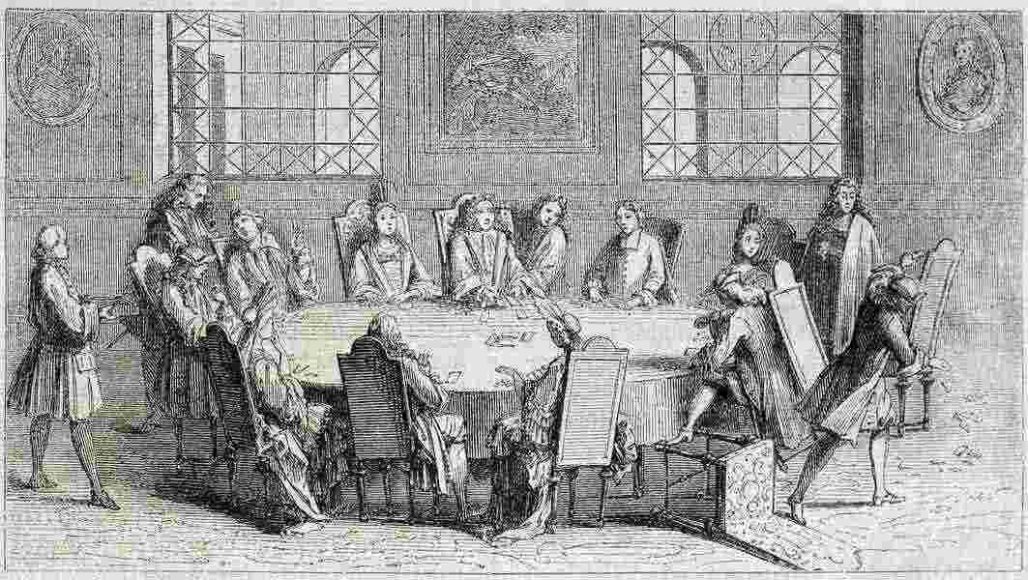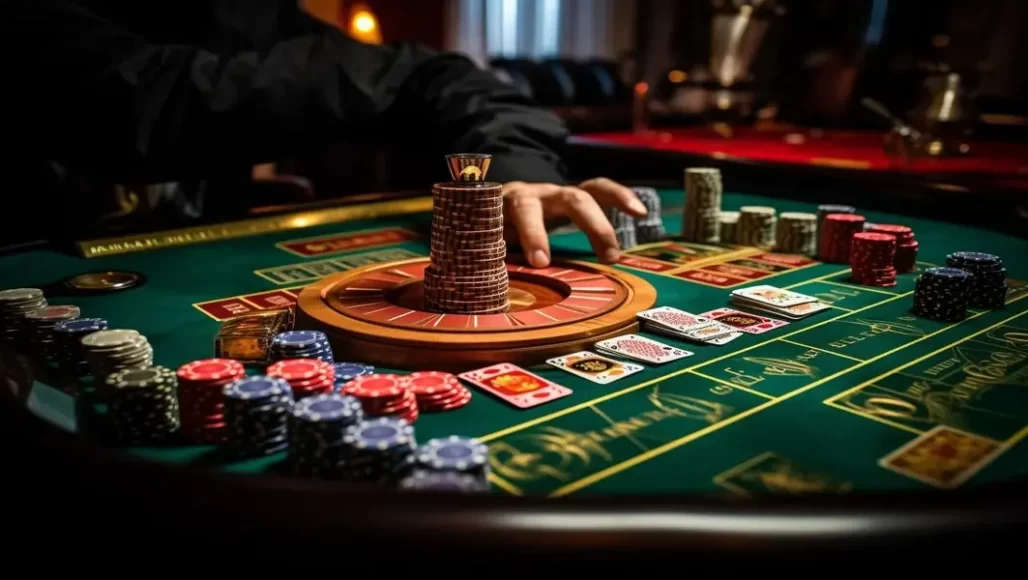Origins of Baccarat: Tracing the Roots of a Timeless Casino Game

Baccarat, a game synonymous with luxury and high stakes, has long been a fixture in the world’s most glamorous casinos. While its association with wealth and sophistication is well known, the origins of baccarat are shrouded in mystery and intrigue. This timeless card game, which has captivated kings, celebrities, and high-rollers for centuries, has a history that is as fascinating as the game itself.
Tracing the Baccarat Origin
The origins of baccarat are debated among historians, with some claiming it was first conceived in Italy, while others attribute its development to France. To understand where baccarat originated, we must journey back to the 15th century.
The most widely accepted theory is that baccarat originated in Italy. The name “baccarat” itself is derived from the Italian word “baccara,” which means zero. This is a nod to the game’s rules, where all face cards and tens have a value of zero. It is believed that an Italian gambler named Felix Falguiere created the game, which he called “baccara.” The game quickly became popular among the Italian aristocracy, who were drawn to its simplicity and the excitement of wagering large sums of money.
The Evolution of Baccarat in France
While baccarat may have been invented in Italy, it was in France that the game truly flourished. In the late 15th century, when King Charles VIII and his army returned from Italy, they brought the game with them. In France, the game evolved into “chemin de fer” or “chemmy,” a version of baccarat that allowed players to take turns being the banker. This variant of baccarat became incredibly popular among the French nobility, and by the 19th century, it had become the game of choice for the elite.
| Origin | Italy, later popularized in France |
| Introduction in France | 15th century by King Charles VIII |
| French Version | “Chemin de fer” or “chemmy” |
| Popularity | Popular among French nobility, 19th-century elite |
| Secrecy | Played in secret due to gambling laws |
| Spread to England | Adopted by British aristocracy, favored by the rich and famous |
The game’s popularity in France was so immense that it was often played in secret rooms, away from the public eye, as gambling was illegal in many parts of the country. Despite this, the allure of baccarat continued to grow, solidifying its status as a game for the upper class. The French version of baccarat eventually made its way to England, where it was embraced by the British aristocracy and became a favorite pastime of the rich and famous.
When Was Baccarat Invented?

Pinpointing the exact date when baccarat was invented is challenging, but most historians agree that the game emerged in the late 15th century. The earliest documented mention of baccarat is from an Italian manuscript dated 1490, which references a game similar to modern-day baccarat. This suggests that the game was already well-established by this time.
However, it wasn’t until the 19th century that baccarat began to resemble the game we know today. The introduction of the chemin de fer variant in France added a new layer of strategy to the game, making it even more appealing to high-stakes gamblers. By the late 1800s, baccarat had spread across Europe, with each country developing its own unique variations of the game.
Famous Baccarat Players: A Legacy of Glamour and Fortune
Baccarat has attracted many famous players throughout history, from royalty to Hollywood stars. One of the most well-known baccarat enthusiasts was King Edward VII of England, who was a regular player at exclusive clubs in London. His love for the game was so well-known that it even led to a scandal in 1891, when he was accused of cheating during a high-stakes baccarat game.
Another famous baccarat player was the American millionaire John W. Gates, known for his lavish lifestyle and high-stakes gambling. Gates was a regular at baccarat tables in Monte Carlo, where he was rumored to have won and lost fortunes in a single night. His flamboyant style and love of risk made him a legendary figure in the world of baccarat.
In more recent times, the iconic actor Sean Connery, famous for his portrayal of James Bond, was also an avid baccarat player. Connery’s connection to the game is immortalized in the 1962 film “Dr. No,” where Bond is seen playing a tense game of baccarat, further cementing the game’s association with sophistication and danger.
The Rise of Baccarat in Modern Casinos
oday, baccarat remains one of the most popular casino games in the world, especially in Asia. In Macau, often referred to as the “Gambling Capital of the World,” baccarat accounts for more than 85% of the casino revenue. The game’s simplicity and the low house edge make it particularly appealing to high-rollers, who are drawn to the thrill of betting large sums on the outcome of a single hand. This contrasts with games like craps and online slots free, which, while popular, often cater to a broader audience with varied betting styles and different house edges. Craps, with its fast-paced, communal atmosphere, offers a different kind of excitement, while slot machines attract players with their easy accessibility and the lure of progressive jackpots.
In the United States, baccarat gained widespread popularity in the 20th century, thanks in part to its portrayal in films and the influence of celebrity players. The game is now a staple in casinos from Las Vegas to Atlantic City, with VIP rooms dedicated solely to high-stakes baccarat. This level of exclusivity is something that games like bingo, with its community-centered play, and poker, where players contend with a rake, a fee taken by the house, don’t typically provide. Baccarat’s allure for high-stakes gamblers sets it apart, making it a unique experience in the diverse world of casino gaming.
Why Baccarat Endures: A Game of Chance and Strategy
Baccarat’s enduring popularity can be attributed to its unique blend of chance and strategy. Unlike many other casino games, where skill plays a significant role, baccarat is primarily a game of luck. The rules are straightforward: players choose to bet on the “player,” the “banker,” or a “tie.” The objective is to have a hand that totals as close to nine as possible.
Despite its simplicity, baccarat offers a level of excitement that few other games can match. The high stakes, the aura of exclusivity, and the possibility of huge wins have made it a favorite among both novice and experienced gamblers. Moreover, baccarat’s rich history and association with famous players continue to add to its allure, making it a game that transcends generations.
Baccarat Today: A Global Phenomenon

n the 21st century, baccarat has become a global phenomenon, enjoyed by millions of players around the world. The rise of online casinos has made the game more accessible than ever before, allowing players to experience the thrill of baccarat from the comfort of their own homes. In recent years, live dealer baccarat has also gained popularity, offering an immersive experience that combines the convenience of online play with the excitement of a real casino.
Baccarat’s international appeal is evident in the diverse array of players who enjoy the game. From the glitzy casinos of Monte Carlo to the bustling gambling halls of Macau, baccarat continues to attract a broad spectrum of players, each drawn to the game’s elegance and simplicity. This contrasts with other popular casino games like Wheel of Fortune, which, while also widely enjoyed, offers a different type of experience with its vibrant, fast-paced spins and the thrill of watching the wheel determine one’s fate.
Conclusion
The origins of baccarat may be steeped in mystery, but its legacy is undeniable. From its beginnings in Italy to its evolution in France and eventual spread across the globe, baccarat has maintained its status as a game of glamour, intrigue, and fortune. Whether played in the private rooms of European aristocracy or the bustling casinos of modern-day Macau, baccarat remains a symbol of high-stakes gambling and sophisticated entertainment. As the game continues to evolve and attract new generations of players, its rich history and enduring appeal ensure that baccarat will remain a cornerstone of the casino world for years to come.
FAQ
Baccarat became popular among the French nobility due to its elegance and the strategic aspect of being able to take turns as the banker.
No, gambling, including Baccarat, was illegal in many parts of France, leading to it often being played in secret rooms.
Yes, the French version of Baccarat eventually made its way to England, where it was embraced by the British aristocracy.
Baccarat’s association with the French and British nobility and its exclusive nature made it a game favored by the upper class.
The name “Baccarat” is derived from the Italian word “baccara,” which means “zero,” referring to the zero value of tens and face cards in the game.
Yes, Baccarat has always been a card game, though its rules and variations have evolved over time.
Originally, Baccarat was a gambling game played for entertainment among the Italian nobility.